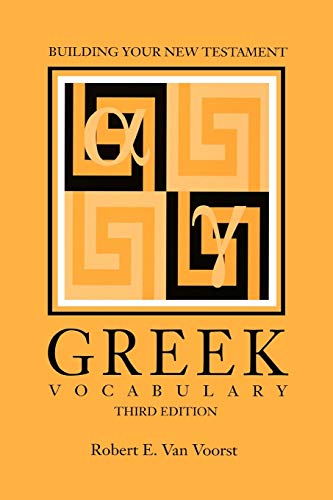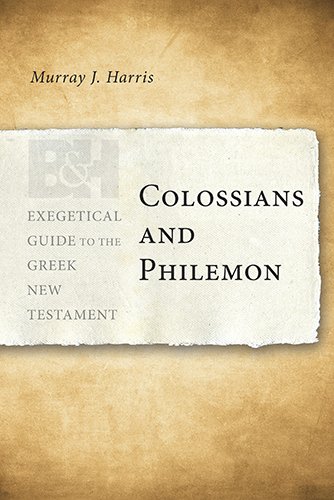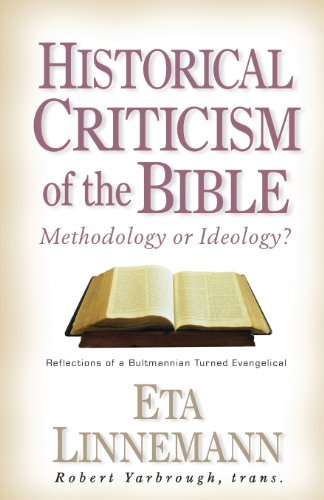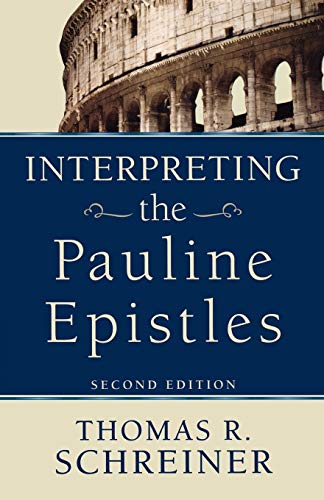Renewal Theology: Salvation, the Holy Spirit, and Christian Living
Written by J. Rodman Williams Reviewed By Arden C. AutryThis is the second volume in a three-volume systematic theology from J. Rodman Williams, professor of theology at Regent University (formerly CBN University) and a strong proponent of charismatic renewal. Although he hopes that ‘both participants and non-participants’ in the charismatic movement will find his work helpful, Williams’ systematics will appeal principally to theological students with Pentecostal/charismatic views.
Having dealt in the first volume with such topics as God, creation, man, sin, Christ and the atonement, Williams here turns to a discussion of the experience of becoming and being a Christian. In the first five chapters (dealing with calling, regeneration, justification, sanctification and perseverance), Williams’ background in the Reformed tradition is evident, although he does not endorse a Calvinist interpretation at every point. He devotes the major portion of the book (chs. 6–14) to a discussion of the person and work of the Holy Spirit. The final chapter contains a discussion of the ethical responsibilities of ‘Christian living’.
For a systematic theology this book’s entry-level simplicity is both a strength and a weakness. On one hand, the work is accessible to those who lack background in technical theological issues. Anyone moderately acquainted with Scripture can follow the discussion readily. The author avoids difficult philosophical discussions and refers only infrequently to the history of doctrine. His approach is a fairly straightforward (and consistently evangelical) exposition of biblical texts relevant to the various topics. Although he frequently supplements this exposition with references to experiences within the charismatic renewal, Williams leaves the reader in no doubt that the Bible is the authority by which all experiences and doctrines are to be judged.
Philosophical implications and interactions with historic debates and formulations are generally left to footnotes and the occasional brief excursus. This makes the book easier for the beginning student but less satisfying for the more advanced. Anyone aware of the history of doctrine and the importance of philosophical commitments will probably have questions not adequately addressed in this work. Mature scholars will not likely find this a satisfying systematics at all, except perhaps as a source for obtaining a representative charismatic viewpoint for a given topic. One should note, however, that many Pentecostal theologians and biblical scholars would not endorse parts of Williams’ presentation, especially his explanation of the charismatic manifestations listed in 1 Corinthians 12:8–10.
This volume will make its most important contributions to students looking for a systematic theology which treats their Pentecostal experience not only with respect but with interest and favour. Such readers will find a reasonably adequate treatment of the usual central questions of theology. More importantly, they will find helpful discussions of issues which are pertinent in charismatic churches but not treated in the standard works on systematics. They may not agree with all Williams’ conclusions or even with his biblical hermeneutics, but they will encounter an honest attempt at responsible theological reflection on the charismatic renewal. Such an attempt should be applauded and may encourage other attempts.
A special value of the book is the way Williams addresses weaknesses and hazards in the charismatic movement. This is especially noteworthy since charismatic leaders have not always shown a willingness to submit to theological critique, and critics within the movement have often suffered scorn as ‘unspiritual’ and thus have been discouraged from speaking out. One example of Williams’ critique of popular charismatic teaching is his treatment of Mark 11:22 (p. 361, n. 68; p. 365, n. 90). He correctly insists that the exhortations should be translated ‘Have faith in God’, rather than ‘Have the faith of God’, as some charismatics have taught. This is not grammatical nit-picking, for the root issue is profound: is faith a power which we can use as God uses it, or is faith trust in God? Our answer will assign sovereignty either to God or to the person who knows the secrets of using faith. Williams astutely observes that the chief error of the ‘word of faith’ wing of the charismatic movement (represented by Kenneth Hagin and Kenneth Copeland) is its man-centred, rather than God-centred, understanding of faith (p. 366).
In fact, the issue of how to understand God’s sovereignty in relationship to our responsibility to believe and act in faith is at the heart of many long-standing controversies within and surrounding the charismatic movement: Why isn’t everyone healed when we pray in faith? Should we ‘confess’ our healing although we still have symptoms of sickness? What power, if any, do our words have to affect reality? When are we ‘stepping out in faith’ and when are we acting presumptuously? Williams effectively addresses these questions with a corrective emphasis on God’s sovereignty (a healthy application of his Reformed training!), although he continues to exhort us to believe God for miracles as we seek to do his will.
Despite such good points, this book elicits some criticism of its own. At a crucial point Williams knowingly diverges from a commonly accepted guideline for deriving normative doctrine from Scripture: material which was intended to teach truth directly (didactic material) must be given preference over material intended to narrate events. Didactic tells you what to do or believe; narrative tells you what happened, not necessarily what should happen or will always happen. Therefore, didactic is more normative than narrative. Knowing that others acknowledge this principle, Williams is careful to explain his reasons for rejecting it (p. 182 n. 4). This decision is fundamental to the major portion of this volume, as Williams draws on the narrative of Acts to support his presentation of the ‘coming’ of the Holy Spirit as an event subsequent to and separate from conversion.
Looking only at Acts, we can easily find believers who have yet to receive the ‘coming’ of the Spirit (Acts 8). The difficulty lies in harmonizing this with Paul’s claim that every believer has the Spirit (Rom. 8:9). The problem is eased by recognizing that Luke focused on the Spirit’s empowerment for mission; he left the Spirit’s role in regeneration for John and Paul to explain. Williams recognizes Luke’s limited aim (p. 206) but still insists that Acts is paradigmatic for the Spirit’s ‘coming’. Thus his chapters on ‘The Coming of the Holy Spirit’, ‘The Reception of the Holy Spirit’ and ‘The Effects of the Coming of the Spirit’ all concern post-conversion experiences of empowerment.
The reader could easily be confused by the resulting picture of the Spirit’s presence: each believer is indwelt by the Holy Spirit (p. 50, agreeing with Paul), but this is before the ‘coming of the Spirit’, which ‘goes beyond salvation’ (p. 205, emphasis his). Any reader could be excused for wondering, ‘How is the Spirit present in me before his coming?’ Systematic theology should clarify issues (by respecting the biblical authors’ intentions and letting didactic be normative) rather than cause further confusion.
Pentecostals and charismatics promote an experience of the Spirit’s empowerment beyond regeneration, usually using ‘baptism in/with the Spirit’ or ‘filled with the Spirit’ to refer to this. Non-Pentecostals answer that the ‘baptism’ or gift of the Spirit is associated with conversion (since all believers have the Spirit), but they agree, in principle, with the importance of seeking to be ‘filled with the Spirit’ (Eph. 5:18). Agreeing that non-Pentecostal believers have the Spirit but wanting also to encourage a greater experience of his power, Williams would do better to make ‘filled with the Spirit’ his term of emphasis instead of the confusing expression ‘coming of the Spirit’. This would put the discussion more on common ground rather than widening the gap between ‘participants and non-participants’ in charismatic renewal. All Christians should be eager to embrace the full range of the Spirit’s activity, but such an aim is not advanced by creating needless confusion about the Spirit’s presence in all Christians.
Arden C. Autry
Oral Roberts University, Tulsa, OK, USA







